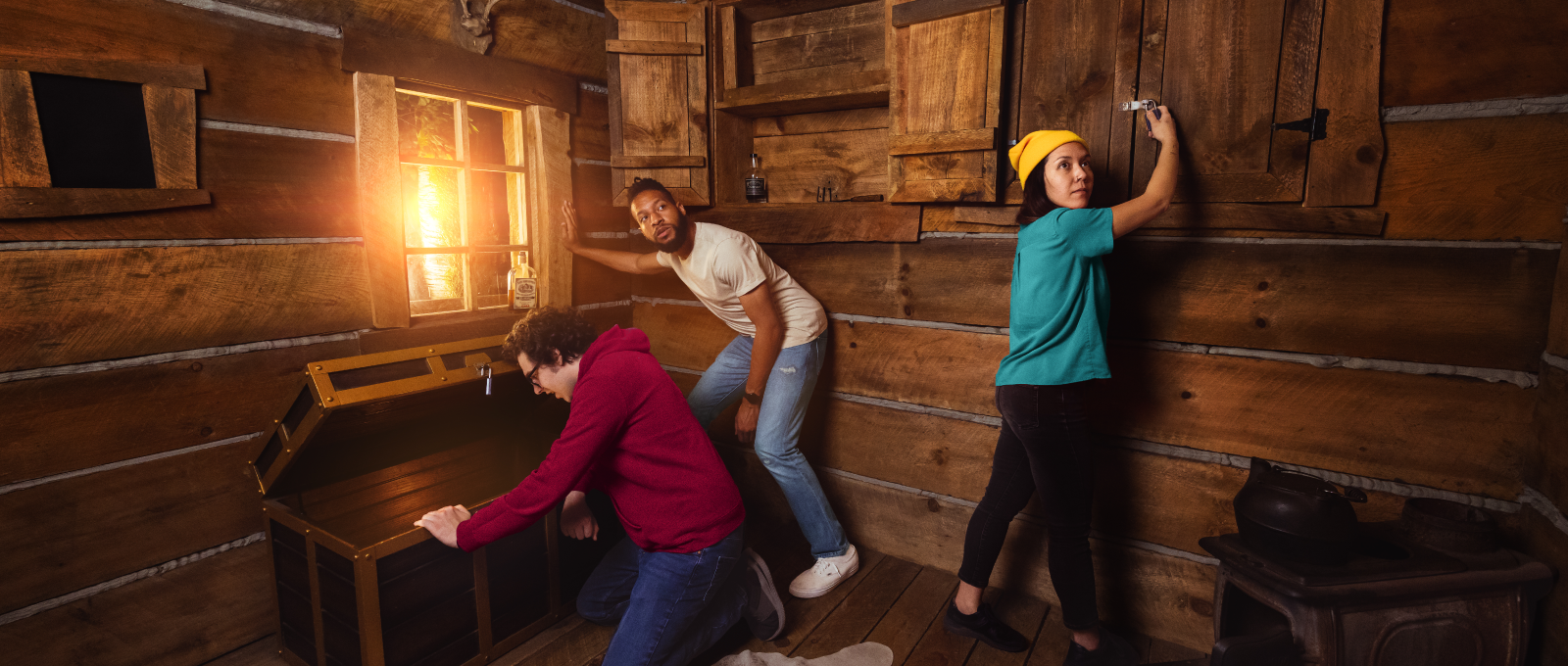Best Escape Room-- Test Your Abilities and Resolve the Enigma
Best Escape Room-- Test Your Abilities and Resolve the Enigma
Blog Article
Group Techniques: Exactly How to Collaborate Effectively in a Retreat Area
Browsing the complexities of a retreat space demands greater than mere excitement; it needs a well-coordinated technique grounded in clear communication, tactical duty projects, and adept time management. Teams should actively listen to each participant's insights, designate duties that align with private staminas, and preserve routine check-ins to guarantee emphasis and stop redundancy. By promoting an environment that values cohesion and flexibility, groups can dramatically enhance their efficiency and success prices. The subtleties of these approaches can transform the experience, however exactly how exactly can they be implemented to optimize the potential for success?
Establish Clear Communication

To help with clear communication, it is necessary to mark a main factor of contact for details dissemination. This duty entails summarizing findings and recommended methods to ensure everybody stays on the very same web page. Furthermore, embracing a systematic technique to conversations can protect against disorderly exchanges. For circumstances, quick, focused updates from each group participant can keep the group informed without frustrating them with information.

Appoint Duties Tactically
While clear interaction sets the structure for effective teamwork, assigning roles strategically guarantees that each team participant's strengths are made use of effectively. In a retreat space situation, the time-sensitive and complicated nature of difficulties demands a well-organized strategy to job delegation. By determining and leveraging individual competencies, teams can optimize their problem-solving capacities and improve total performance.
A person with an eager eye for detail may stand out in discovering concealed things, while a rational thinker could be better fit to addressing challenges. This role often requires solid business and social skills.
2nd, make sure that duties are flexible and adaptable. As brand-new challenges arise, the group should be able to pivot, reallocating jobs as required. This flexibility assists preserve momentum and prevents bottlenecks that can take place due to stiff role projects.
Eventually, a tactical technique to function task not only optimizes the toughness of each team participant but also fosters a natural atmosphere, driving the group in the direction of an effective retreat.
Make Use Of Diverse Abilities
Acknowledging and harnessing the diverse abilities he said within your team can significantly boost your efficiency in an escape room. Each group participant brings distinct staminas to the table, and properly leveraging these capabilities can accelerate problem-solving and enhance total effectiveness. A group participant with solid analytical abilities may succeed at understanding complicated codes or patterns, while one more with eager empirical capabilities might swiftly detect surprise clues that others may ignore.
Urge team members to articulate their insights and concepts without delay, ensuring that all prospective options are considered. Additionally, designating tasks that line up with each member's staminas can stop traffic jams and make sure that progress is constant.
Additionally, variety in abilities frequently converts to diversity in thinking designs, which is important in an escape space setting. While some challenges may require sensible reasoning and accuracy, others may benefit from creative and association of ideas. By recognizing and leveraging this variety, teams can address a broader variety of difficulties better, consequently raising their chances of an effective getaway.
Manage Time Effectively

First, assign preliminary minutes for a fast study of the room. Recognize visible challenges and separate jobs based on team participants' toughness, making sure that nobody is idle. Set internal time checkpoints to evaluate progression occasionally; as an example, goal to have half the problems solved by the mid-point of the game. This practice can aid maintain the group concentrated and avoid time from slipping away undetected.
Additionally, prevent one-track mind. If a challenge is taking as well long, turn group members or proceed to another difficulty, returning later with fresh viewpoints. Interaction is critical-- keep every person updated on fixed puzzles and staying tasks to stay clear of repetitive efforts.
Lastly, make use of any type of tips or hints moderately but purposefully - best escape room. Knowing when to request for help can conserve beneficial time. By sticking to these time management principles, groups can substantially boost their possibilities of an effective and enjoyable escape area experience
Debrief and Show
Reflection is a necessary element of group advancement and improvement in the context of escape spaces. Once the difficulty is completed, whether efficiently or otherwise, it is vital for the group to engage in a structured debriefing session. This process allows group participants to analyze their efficiency, determine strengths, and pinpoint areas for renovation.
Begin the debrief by reviewing what went well. Highlight particular instances of reliable communication, problem-solving, and cooperation. Acknowledging these favorable behaviors enhances them and motivates their rep in future obstacles.
Review moments of complication, miscommunication, or inefficient methods. Urge an open and useful dialogue where team members can share their viewpoints without anxiety of objection.
Final Thought
In verdict, successful cooperation in a retreat area is asserted upon clear communication, tactical function jobs, the special info efficient use of diverse skills, and skilled time administration. By producing a cohesive and flexible team setting, the possibility of efficiently addressing puzzles and achieving the purpose of escaping the room is substantially enhanced.
Report this page